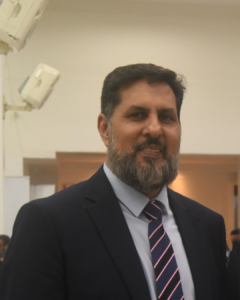By Nelisiwe Msomi
As part of a post women’s month commemoration, the Muslim Youth Movement (MYM) gender desk held an intergeneration discussion with two activists who have been in the trenches fighting for equality in the Gender-Jihad battle.
Women empowerment activist Shameelah Khan and gender specialist and leadership development consultant Rosieda Shabodien are of the view that the battles fought 20-years-ago remain the same today.
In her opening address, Khan cited the incident that took place at a masjid in Johannesburg.
“We got to the mosque and prayed in the little room designated for women – with a little speaker”.
They then contacted the mosque to gain access to the mosque, but were barred by the imam.
“Eventually, to sum this experience up, we collectively prayed and sat together in the courtyard because the space we wanted to pray in had the electricity cut and we were forced out of the room, which was not attached to the mosque at all,” she remembers.
“This incident, of course, is not the first of its kind to happen.
“It is impossible for me to speak about what happened to the women at the mosque two years ago without reflecting and drawing a link between the incidents with Sister Shamima Shaikh in 1994 and the incidents of what we went through at the mosque,” Khan reflects.
Gender jihad is not just limited to fighting for access to masjids. For years, they say, women have been pushed aside. Young girls are being taught to dim their lights; to make themselves marriage material; being silenced both physically and psychologically.
They say there is a need for Muslim marriages to be recognised. They decried the lack of support from the mimbar for domestic and sexual abuse.
As gender apartheid is still rife within our democratic dispensation, Shabodien says that Muslim women must understand that we are protected by the country’s constitution.
“When we fight revolutions, our anger is not enough. We have to convert our anger into strategy. When we enter discussions about gender equality, we should not be surprised that people want to make us feel inferior. We need to be armed with the right tools and frame of mind to say that we have God-given rights to how we walk on this earth as we are equal to
Men – we are not less,” says Shaboedien.
She says that there are important lessons to learn, especially when it comes to Muslim personal law.
“The biggest thing for me is that we need mass mobilisation. Why is it that Muslim women are not en-masse mobilising at parliament and asking why our marriages are not recognised?” she asks.
The following are some of the solutions that Khan and Shabodien suggested as a way forward: Close the gap between academics and activists; Educate women in communities in a manner that is easier to understand; Build alliances with Muslim men who are against misogyny; Build sustainable collaborations of people and groups from different sectors; Create spaces for intergenerational healing; Establish and develop a waqf centre – a safe space for women for legal, education, shelter or legal help centre.
The MYM gender desk will soon be hosting the annual Shamima Shaikh Memorial Lecture. Details will be published on social media.


